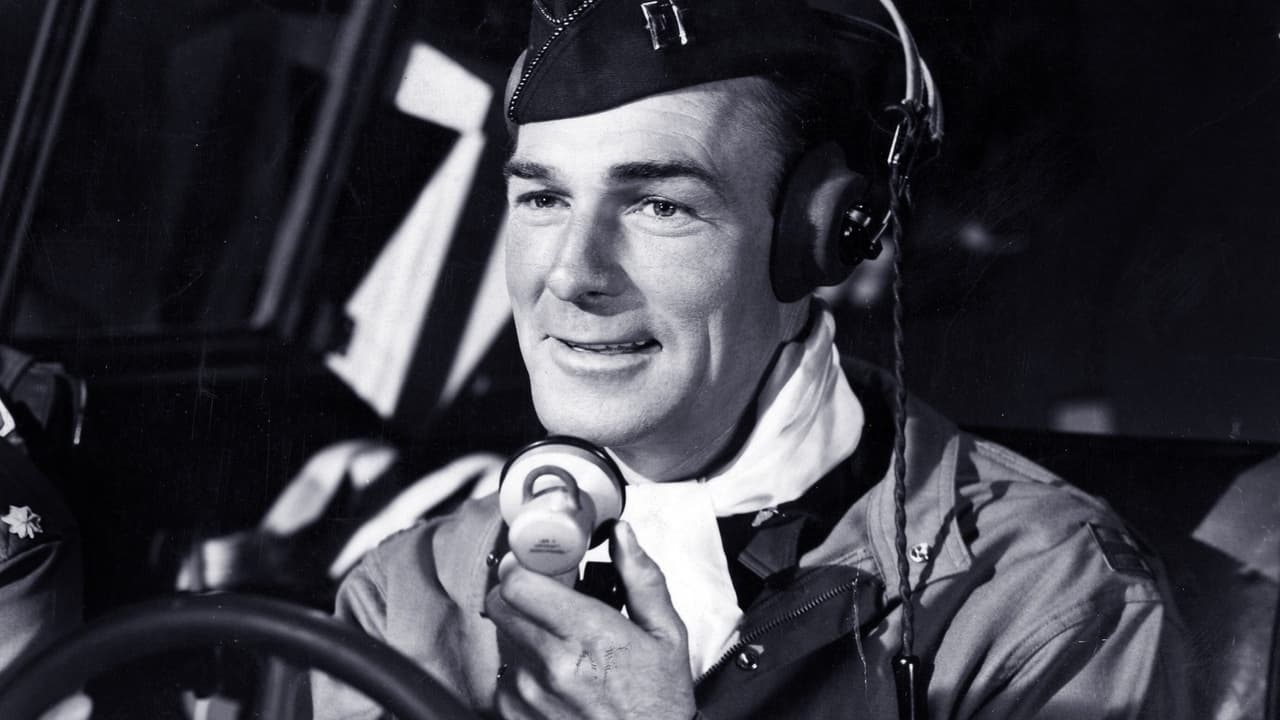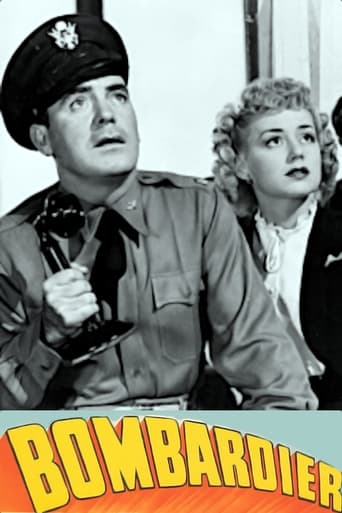

Purely Joyful Movie!
... View MoreAlthough it has its amusing moments, in eneral the plot does not convince.
... View MoreIt is a whirlwind of delight --- attractive actors, stunning couture, spectacular sets and outrageous parties.
... View MoreIt's a movie as timely as it is provocative and amazingly, for much of its running time, it is weirdly funny.
... View MoreThis semi-documentary war drama is a face paced look at the lives of the pilots whose job it is to measure distance from the air to make sure the bombs they drop hit their targets. It even starts off like a documentary with no real credits (those are held off until the end) and explains in good detail of what these extremely brave men do, at great risk to their lives, but at even greater risk to their country if they didn't. The first half covers their training while the last part takes us on one of their missions, a dangerous one that has them falling right into the camp of the enemy. That sequence had me riveted to my television in total awe to the technical impressiveness of it all and the horror of these men's situation.But no matter how much their own lives are in peril, they get the goods on the enemy, never once giving into the tortures and utilizing a popular children's story in giving away American "secrets". The cast is superb, and includes Pat O'Brien (as the trainer), Anne Shirley (well utilized as the only major female character in a men's story), Robert Ryan, Randolph Scott (who gets a great final moment) and Eddie Albert as a trainee who meets a most horrifying destiny in the most shocking moment of the film. A rousing song of the Bombardiers is a light-hearted moment that is poignant and fun but never corny.
... View MoreBasically a typical propaganda film for the last good war. But there were a couple things that struck me. First was the use of mouthed epithets. In two cases the Scott character mouths one, once at the beginning when he drops his bomb off target during the bomb-off ("dammit") and once when he is trying to sway a bombardier into being a pilot ("s*%t"). I could be wrong about the second instance but I replayed it several times and that's what it looks like to me. The third case is when the Anne Shirley character wishes the O'Brien character goodbye and good luck ("Give 'em hell") over the roar of the engines. She must have thought that was too unladylike because she clearly says "heck". I also found interesting the character that has moral problems with bombing, specifically bombing civilians. The avuncular superior officer assures him that only military targets will be hit due to the precision of the bombsight used. Given what we know about the LeMay's later strategy of firebombing Japanese cities into oblivion this scene plays with not a little irony. I remember McNamara's quoting of LeMay in "The Fog of War", something to the effect that if the US did not win the conflict he would be tried as a war criminal. The ending is way overwrought, in keeping with the movie. It reminded me a bit of the end of White Heat (I'm not comparing the films, just the ending!). Maybe it's just 'cause he gets blowed up. Blowed up real good!!!
... View MorePat O'Brien takes his Knute Rockne character and joins the Army Air Corps in Bombardier and he and Randolph Scott have a disagreement as far as air tactics go. Scott wants to do things as they do in the RAF where he's been an observer. Fly in low and drop bombs and avoid being shot at.O'Brien is more interested in technology. Develop and learn how to use an accurate bombsight so you can be up around 20,000 feet and only have to worry about enemy planes which presumably your fighter escort has to deal with.But since these guys are friends it's a good natured fight as both are in the business of training bombardiers. Among the familiar faces they train are Eddie Albert and Robert Ryan before both went in the service themselves. Bombardier is so very dated now, but still entertaining. The advances in technology are light years beyond what O'Brien and Scott are dealing with. Film buffs who are air historians might like it though.
... View MoreThere is no question as to who is in command of the training of cadets in this film: Major Chick Davis (Pat O'Brien). O'Brien plays an officer who adheres to military discipline in the creation of a new kind of soldier from his cadets--the bombardier. But he is not so rigid as to be unfair or unfriendly. In fact, he even changes his opinion as to the value of women working in the military. He's tough when he has to be, yet at other times he is a clear mix of coach and pastor, roles he perfected in other films. His character is the foundation of the action around which everything revolves. O'Brien seems natural in the role, and plays it in fine fashion. Two things help this movie: O'Brien's performance and the spectacular special effects ending.
... View More